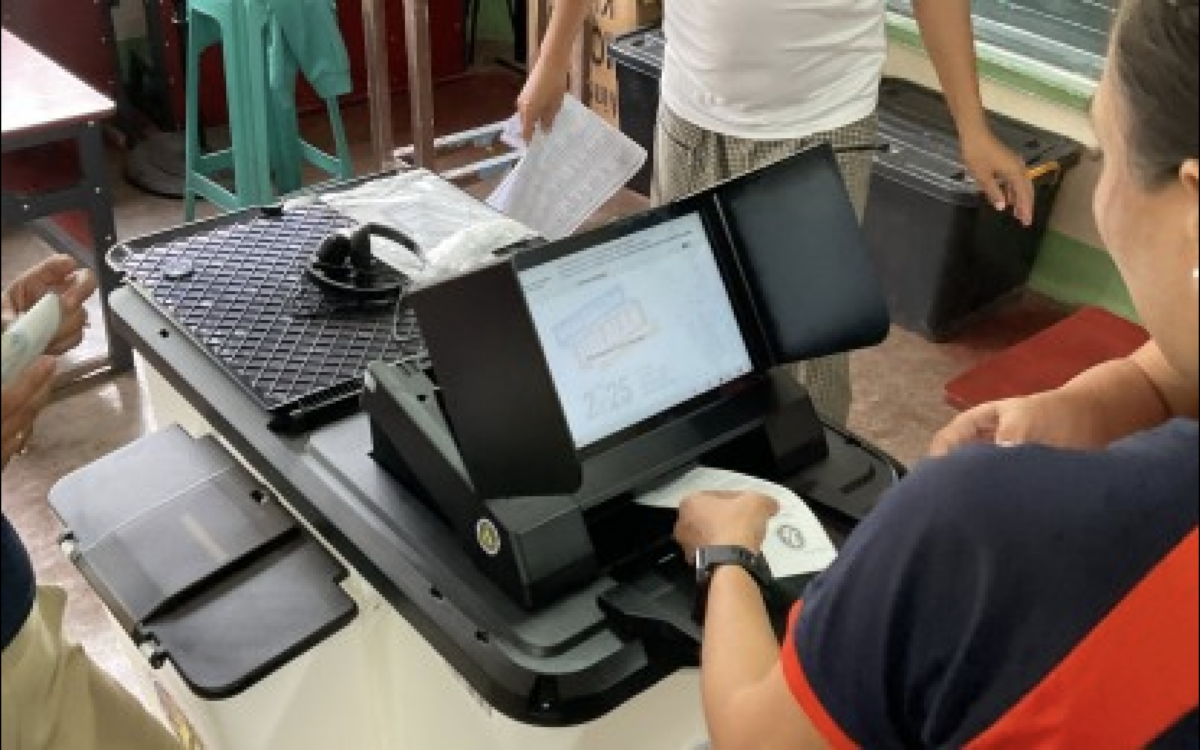Nearly 300 ACMs with ‘major issues’ replaced, says Laudiangco
Follow our 2025 Election Live Updates here.

Automated counting machine (File photo from Philippine News Agency)
MANILA, Philippines — Nearly 300 automated counting machines (ACMs) for the 2025 midterm polls have been replaced, said Commission on Elections spokesperson John Rex Laudiangco on Monday.
In a press conference at the Comelec’s technical call center in Parañaque, Laudiangco said they have received 3,000 calls or tickets from technicians assigned to watch over ACMs in precincts nationwide.
“Meron kaming 333 na major issues. Ang major issues na yan ay kailangang palitan. 298 of those, pinalitan po namin ang ACM,” reported Laudiangco.
“Yung natitira pong butal noong 333 na yan, ang pinalitan po namin ay USB — di naman siya major to the point na nagkaroon ng catastrophic failure,” he said.
“Ang ayaw po kasi namin yung magtatagal pa. Pag tatagal ng 60 minutes ang repair time, ang default ay papalitan na,” he explained.
Laudiangco then noted that at least 90 percent of the 3,000 calls they received as of 2 p.m. on Monday have been resolved.
Most of it are just problems in terms of ballots that have not been read because it was inserted the wrong way, printers that did not align, or smart cards used to access the ACMs.
Laudiangco said at the same hour in 2022, the Comelec already recorded at least 1,800 vote counting machine replacements.
While he emphasized that he is not comparing, he said this number is very far from the 298 they have recorded at present.
He said it might be a good sign that their strategy to change systems was good.
In March 2024, Comelec and the South Korean firm Miru Systems Co. Ltd. (Miru Systems) inked an almost P18-billion contract for the lease of an automated election system to be used in the 2025 midterm elections.
Miru Systems was the sole bidder for the lease of a Full Automation System with Transparency Audit/Count (Fastrac) to Comelec.
The contract includes the supply of 110,000 automated counting machines, election management systems, consolidation and canvassing systems, ballot printing, ballot boxes and other peripherals.
Comelec, for its part, said hardware acceptance test was conducted on the machines.
The poll body said other components of the machines underwent thorough testing.
These components include the machines’ battery load operation, touch screen, scanner, printer, camera, audio, smartcard port, LED (light emitting diode), sensor, external keypad, network and HDMI (high-definition multimedia interface)./apl


















